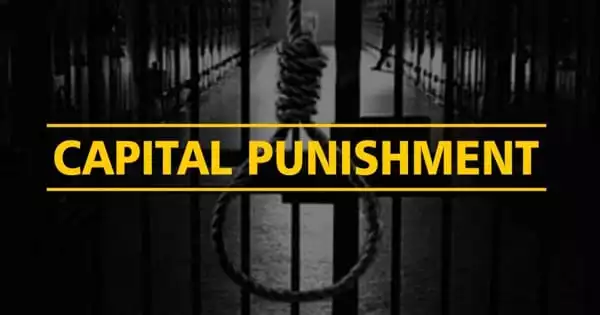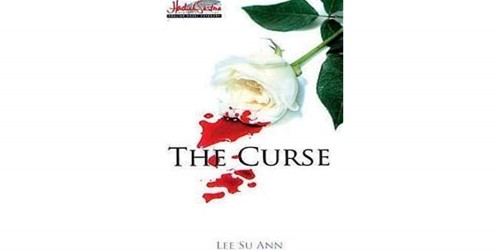The lawful infliction of death as a penalty for breaching the criminal law of the land is known as capital punishment. People have been executed for various sorts of misbehavior since time immemorial. Crucifixion, stoning, drowning, burning at the stake, impaling, and beheading have all been methods of execution. Today, capital punishment is usually carried out through the use of deadly gas or injection, electrocution, hanging, or shooting.
The death sentence is the most notoriously harsh procedure in the modern world. Other violent, physical kinds of criminal punishment are also known as corporal punishment. In modern times, punishment has been mostly abolished as ineffective and unneeded. Modern methods of punishment, such as incarceration or fines, no longer include the infliction of physical pain in the majority of countries. Despite the fact that jail and fines are unanimously regarded as vital tools for criminal control.
The world’s nations are divided on the question of capital punishment. Around 80 countries have abolished the death penalty, while nearly the same number still use it.
Every person has an equal right to “life, liberty, and the pursuit of happiness,” according to a widely accepted social principle. Within that context, an argument for capital punishment can be articulated as follows: some offenses are so heinous and damaging to society that they negate the committee’s right to life. The right to live and pursue a good life in a society is not absolute. It can be undermined by behavior that contradicts the nature of a moral community. To live in a society, each individual is expected to respect the legitimate demands of others. Denial of life and chance to others voids one’s own claim to continue in society.
The preservation of moral community necessitates that the destruction of its foundation is treated with the utmost seriousness. Those who violate the rights of others, especially if they do so on a regular basis, must face the ultimate penalty. This penalty must be administered in order to uphold the rule of law in society. The question is whether capital punishment is justified even in such instances.
An ideal society would be made up of citizens who are committed to promoting a balance between individual self-actualization and the progress of the common good. Mutual affection would be the foundation of social life. Everyone would contribute to the best of their abilities, and everyone would be compensated in accordance with their legitimate claims to available resources.
What should a community founded on this type of love do in the face of individuals who conduct heinous acts of terror, violence, and murder? If interpreted negatively, it would follow the notion of “an eye for an eye, a tooth for a tooth, and a life for a life.” Those who had demonstrated little regard for the lives of others would be restricted, permanently if necessary, so that they could not imperil others in the future. The goal of incarceration, however, would not be retribution or punishment. Rather, an ideal society would investigate the causes and conditions that led to a crime and make amends, even if it meant punishing individuals who had shown no pity. It would work as a treatment by good for evil. The aim of isolation is reconciliation and not revenge. It is ever hopeful that even the worse among us can be redeemed so that their own potential contribution to others can be realized.
In summary, the reasons for and against capital penalty are based on justice and the nature of moral society, while the other is based on love and the nature of an ideal spiritual society. When we step back from this description and attempt to evaluate it, one point stands out. The love ethic necessitates a high level of moral and emotional development. It is better suited to a small, close-knit society where everyone deeply loves everyone other. Forgiveness and reclamation thrive best when individuals love and care about each other’s lives. It evolves into an ethic of resistance to evil, unqualified pacifism, and self-sacrifice in which self-interest is completely absent.
At this level, the non-resisting Jesus on the cross who surrenders his life to save others is the essence of agape. Ethical love has no conditions and will reach out to others even if they do not deserve it. However, it will fight any encroachment on its own equal claim to fulfillment and, if possible, will repel any denial of one’s own right to be completely human in all respects. In contrast to the pacifist, ethical love would excuse killing in self-defense as well as killing adversaries in a righteous war when non-lethal alternatives are unavailable. They are a tragic and essential emergency to put an end to current and ongoing bloodshed.
Can unconditional love for the others that regards the welfare of the neighbor equal with one’s own be the ideal expected of the citizens. Surely, that would be to hope for an “impossible possibility:’
Nation-states are unlikely to become passionate in their commitment to one another, even on rare occasions! Mutual, let alone sacrificial, love is rarely the governing principle in the relationship between two corporations, and neither has aspirations in that direction. A feasible ethical norm for the state and nation will appeal to the ideals of justice and the needs of a moral society. To put it another way, ethical love manifests itself as a social policy for vast, impersonal societies in the form of justice. It is impossible to specify what such a rule entails for secular, pluralistic communities. Within this perspective, a compelling but disputed case for capital punishment can be established.
Pragmatically and politically, of course, one has to work within the framework of justice as defined by the secular society in which they have their citizenship and seek to transform it in the light of their own ideals.
To summarize, the current practice of capital punishment is viewed as a moral abomination by many. The irony is that the society with the least right to inflict it is exactly the one most inclined to do so. The irony is that society’s economic dysfunctions and cultural disorders contribute to the violence, necessitating even more repression and brutality towards its disobedient citizens in order to maintain order and avoid chaos. Because society provides an opportunity for all citizens to have a happy life in a civilized culture, it is reasonable to expect the need for capital punishment to be decreased or eliminated. It points to the shallowness of our dedication to solving the basic problems of poverty, moral decay, meaninglessness, and social discord.
















